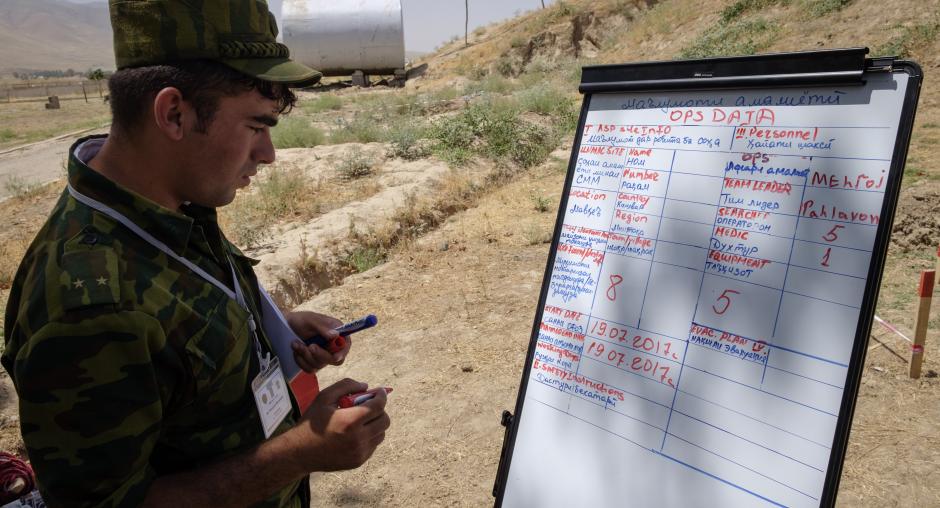OSCE Programme Office in Dushanbe supports advanced explosive ordnance disposal courses

Two parallel 11-day courses on explosive ordnance disposal (EOD) level 3, supported by the OSCE Programme Office in Dushanbe, were concluded in Dushanbe on 21 July 2017. The courses for Russian-speaking and Tajik-Dari speaking students, respectively, were attended by 42 trainees from Afghanistan, Kazakhstan, Kyrgyzstan, Mongolia and Tajikistan.
“The regional EOD training programme, facilitated by the OSCE Programme Office in Dushanbe since May 2014, focuses on developing skills of national instructors as well as all-round EOD specialists to enable them to perform their duties in today’s complex world,” said Ambassador Tuula Yrjölä, Head of the OSCE Programme Office in Dushanbe. “The programme includes the gradual transfer of training responsibilities to Central Asian and Afghanistan partners.”
The courses, hosted by the Ministry of Defence of Tajikistan, were jointly delivered by the United States Army Central (supported by the United States Embassy in Dushanbe) and Central Asian instructors. They were certified by the Tajikistan National Mine Action Centre.
Representing the main donor, Lieutenant Colonel Kevin Steele, Chief of the Office of Military Co-operation at the United States Embassy in Dushanbe, noted: “The international participation on joint trainings contributes to development of common approaches and co-operation in addressing explosive hazards issues, thus enhancing regional stability and security.”
Representing the course certifier, Muhabbat Ibrohimzoda, the Director of the Tajikistan National Mine Action Centre, emphasized: “This advanced EOD course develops students’ knowledge and skills in more complex EOD methods. It also provides an opportunity for the officers to practice taking on a wide range of operational roles, including management of operations, quality assurance, incident investigation or task supervision.”
Funding was provided by the United States State Department’s Office of Weapons Removal and Abatement and the Federal Republic of Germany. In-kind contributions were received from the OSCE Secretariat’s Conflict Prevention Centre, ITF Enhancing Human Security from Slovenia, Norwegian People's Aid and the Swiss Foundation for Mine Action in Tajikistan.
The OSCE has been supporting the development of co-operative mechanisms on a technical level among states in Central Asia and Afghanistan to address concerns and challenges stemming from explosive hazards since 2009.
